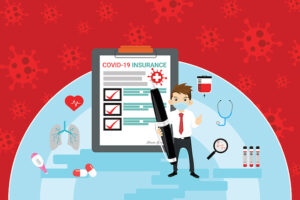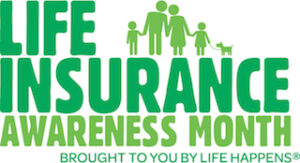With more than 10,000 Baby Boomers turning 65 each day for the next two decades, it’s no surprise that the final expense burial insurance business is booming and increasingly attracting both newly licensed agents as well as experienced agents.
Nevertheless, even with the great financial opportunities that final expense allows for those who work hard and focus on mastering their craft, it is important to understand that the simplicity of this business is deceptive, and that having the proper mindset is paramount to succeed in both the short and long term.
What follows below are seven fundamental steps all aspiring final expense agents need to adhere to in order to maximize their success selling final expense. As many experienced final expense agents will share, much of this knowledge is learned after the fact – sometimes at a high price – so taking heed to the following bits of advice will make your beginning and future career in the final expense business more smooth-sailing and less frustrating.
1. Partner with an agency specializing in final expense.
New final expense agents need to work with an agency specializing in selling final expense, as the market is uniquely different in terms of clients, marketing, and the sales process. Very commonly, experienced life insurance agents with no final expense sales experience are surprised at the difference in selling and marketing in the final expense niche relative to other products they have prospected to and sold.
What most agencies do – especially those more interested in recruiting than training and agent development – is focus on trying to be everything to everybody, when in reality, they end up being “nothing to nobody!”
If an agency recruiting you is awash with different product offerings, you will find that they will not be masters of any of them and in the final expense business, you MUST focus on becoming a master of final expense to realize financial success.
Here’s the takeaway point: If you’re looking at an agency, make sure that this agency is completely focused on specializing in selling final expense. If they begin to talk about cross-selling annuities, IUL products, and other exotic life insurance products, beware! Usually that means they don’t have the experience to intimately understand final expense, thus they cannot intimately TEACH final expense to you!
2. Become an independent agent, NOT a captive agent!
For those of you unfamiliar with what the terms “independent” and “captive” mean, let me explain.
The terms independent and captive describe the relationship the agent has to his agency. A captive agent typically works for a single carrier and is not allowed to represent multiple carriers. Many times, captive agents have onerous contractual obligations that limit their future renewal income if they terminate their relationship with their singular carrier.
On the other hand, an independent agent is the exact opposite. Independent agents make their own decisions as to which carriers they want to work with, and they negotiate their own commission levels.
The best route for most final expense agents is to partner with an independent agency. Why is being an independent agent better than being a captive agent? The nature of final expense insurance sales is that, a) each prospect has a unique health situation that not all carriers can give both the best price and value, and b) force-feeding limited carriers onto your clients that don’t give the best value and price will ultimately result in you losing your business to someone else who can get your client a better plan.
Captivity as a final expense agent reduces your income; independence increases your income opportunity, given the same amount of effort and work detail. Plus you do a better job by your customer with improved product selection.
Take, for example, a case I just finished writing the other day. The prospect had COPD and also smokes. She had recently purchased a final expense plan from a well-known captive carrier. Reviewing her policy, she had a two-year natural death waiting period and was paying close to $90 a month for her policy. Bottom line, this prospect was NOT fully covered by her existing carrier, plus she was paying a boatload, too!
Being able to pick and choose which carriers I work with, I picked the company with the lowest premiums for COPD smokers. Not only can I get her a price for $47 a month for the same amount of coverage as the other guys, but I also got her first full day 100% natural death coverage.
This is an example of what will make you a hero to your new client because not only are you improving the value of their coverage, but you are also dropping her price dramatically, making much more comfortable and likely over the long run for your client to keep the policy you sold her. Only an independent agent can optimally help clients who are in a position like this, which is why I believe becoming independent is fundamental to your success in selling final expense insurance.
• Editor’s Note: This article was submitted by Insurance Forums member David Duford (Screen name: Rearden). To comment on these 7 fundamentals or add your $.02, please visit this new thread in the Final Expense Forum: 7 fundamental steps every new final expense agent must follow
3. Follow the final expense model of success WITHOUT deviation
The truth about how to sell final expense that I learned and teach my agents is that it is simple, boring, and doesn’t require rocket scientist intelligence to put into action and succeed with consistently. What it DOES take is discipline, a strong work ethic, ego control, and willingness to follow the system as it is laid out.
My findings, both personal and working with agents, is the more an agent screws with the system, the worse their results will be!
It should be a great relief that the final expense business does not require an agent to “reinvent the wheel.” For a new agent to succeed selling final expense, he only needs to commit to the tried-and-true ways of how selling final expense works. This business and the process of following it is very simple, but it’s not easy for a lot of situations that are not necessarily obvious to the untrained eye.
What is the system of success in final expense? It’s simple: develop or (preferably) buy leads every week like clockwork, see the people, and ask for business.
The most consistent and successful final expense agents commit to an ongoing, weekly direct mail final expense lead order. Occasionally you will have agents that are successful with telemarketing leads, but nearly all of the top 10% of final expense agents are buying final expense direct mail leads exclusively.
Needless to say, successful agents in this business follow the sales and marketing program as it is taught to them, and doing whatever it takes to get face-to-face with them.
4. Don’t stop buying final expense leads. EVER.
As mentioned previously, “seeing the people” is absolutely necessary to succeed in selling final expense, and purchasing final expense leads continually is what it takes to regularly produce a high volume of business.
Final expense sales is a lead-driven business, and primarily a purchased lead-driven business. Direct mail leads and telemarketed leads are the most common source of leads for the most successful final expense agents. No matter what leads an agent utilizes, you simply cannot cut corners on NOT buying leads.
Every agent needs to make abundantly sure that the leads he is purchasing are “fresh and exclusive leads,” meaning the leads are neither shared with other agents or months old. Believe it or not, lots of the captive companies and the big-time recruiting agencies rotate and resell their leads, pitching them to new agents as “fresh” leads when they’ve actually been worked multiple times and are several months old.
Remember, in any line of business, especially final expense, it is wise to duplicate what the top 10% of salesmen do, and in final expense, virtually all buy fresh leads on a regular basis. If you believe that leads are fundamental to your success, then you need to commit to an ongoing and continual investment in generating leads.
5. Final expense is all about one thing: Hard work and seeing the people!
Once you get the swing of this business, selling final expense is the ultimate numbers game. All you need to do is run more appointments if you want to make more money. Then the rest is up to you!
I know agents that work 15 leads a week, and I know agents that work 30 to 40 appointments a week. They buy 60 to 80 leads a week and they’re closing a quarter-million to $300,000 in net incomea year. In fact, I’ve got an agent that’s doing and on track to do $200,000 in net income this year – his first year in the business. And he’s been able to do that because he followed the system as it was designed, and has worked his tail off implementing the fundamentals.
That’s the great thing about this business; after you get a hang for how to successfully sell final expense, you can easily scale up to the workload and income goals you want. It’s a very simple process to teach once you’ve mastered the basics of lead generation, selling, and prospecting your leads.
• Editor’s Note: This article was submitted by Insurance Forums member David Duford (Screen name: Rearden). To comment on these 7 fundamentals or add your $.02, please visit this new thread in the Final Expense Forum: 7 fundamental steps every new final expense agent must follow
6. Begin with the end in mind when searching for a final expense agency partnership.
You have to look at selling final expense as a long-term career, not as a get-rich-quick scheme. And the agency you choose to work with initially is a huge factor in how smooth or rough the long term will work out.
How do you determine if the final expense agency decision is the best one for you in the long run? The most pressing matter is to specifically quantify ahead of time how your relationship with your agency will be as you advance as an agent.
Specifically, you need to quantify initial commission levels, what type of production allows for a commission level increase, and what the release terms are if the relationship changes and you decide you want to port your carrier contracts to a new agency.
Not getting answers to these specifics in writing is risking losing your ability to make sure your commission level represents your skill level, and to ensure the most flexibility in your final expense business.
Unfortunately, as experienced agents like myself can attest, most companies take advantage of their agents in any way they can. Most agencies purposely do not talk about commission levels, or how to increase commission levels, and want you to remain ignorant while they take the lion’s share of your commission and effort. Then, once you realize that you’re getting schlepped, they will refuse you from moving your carrier contracts if you feel you’re being slighted, and you’ll have to stop producing under that carrier contract for at least six months before you can port the contract to a new agency.
The takeaway point is to ensure your agency relationship satisfies BOTH the short-term need of training and mentoring in combination with the ability to thrive at maximal commission levels over the long term.
7. Treat final expense as a long-term career, NOT a short-term ‘get rich’ scheme.
Selling final expense is a career one can be successful in for the long term. More and more people are retiring, more and more of the population is aging into the typical final expense age range more than ever before, and will continue so for the next 20 to 30 years.
More and more people are going on disability, are retiring, and need additional insurance to cover final expenses. The final expense business is booming and it will continue to boom for the foreseeable future. You have to set yourself up in the beginning with the end in mind, and treat this business like a career.
I would rather see an agent wait to get involved in final expense until they’re properly capitalized, until they’re properly funded, so that they can fund the lead programs and do what’s necessary so they can do it the right way and can stay in this business for the long haul.
And how much money is necessary to be properly capitalized to sell final expense? At least $5,000 in savings specifically to fund leads, with more set aside if possible. This figure does not include your living expenses.
If you cannot fund both your leads and your living expenses properly from the get-go, either, a) work final expense on a part-time basis (with a full-time effort!) two days a week while you keep your day job to fund your living expenses in combination with your lead investment, or, b) get a second job for a few months and set aside the proceeds from that job into an account to be used eventually to fund your leads and living expenses.
David Duford (Insurance Forums screen name “Rearden”) is the owner and operator of Final Expense Agent Mentor. He specializes in training both newly licensed agents and experienced agents on how to succeed in the final expense burial insurance market. You can learn more about his Mentorship Program at http://www.FEAgentMentor.com.
• Editor’s Note: This article was submitted by Insurance Forums member David Duford (Screen name: Rearden). To comment on these 7 fundamentals or add your $.02, please visit this new thread in the Final Expense Forum: 7 fundamental steps every new final expense agent must follow













